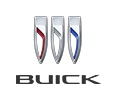Towing Terms Everyone Should Know in Houma, LA
Towing Terms You Should Know
Towing Terms Everyone Should Know
There’s more to towing than just hitching one to another and hitting the road. Towing successfully requires understanding specific terms to ensure safety and efficiency. Whether you're towing a camper, boat, or trailer, knowing these terms can make the difference between a smooth journey and a roadside headache. Here's a glossary of essential towing terms everyone should know.
Max Towing Capacity
Max towing capacity is the maximum weight your vehicle can safely tow. It factors in the vehicle's engine strength, brakes, chassis, and transmission system. Exceeding this capacity can lead to significant mechanical issues or accidents. Before you attempt any towing job, consult your vehicle's manual to find out how much your vehicle can safely handle. Here’s a quick towing capacity guide for RAM’s 2024 truck lineup.
Payload Capacity
Payload capacity refers to the maximum weight you can safely load onto your vehicle, including the cabin and bed (for trucks). This includes passengers, cargo, and the tongue weight of the tow (more on that later). It's crucial to distinguish payload capacity from towing capacity; the former is what goes in your vehicle, while the latter is what you can pull behind it.
Tongue Weight
Tongue weight is the downward force that the trailer's coupler exerts on the hitch of the towing vehicle. Proper tongue weight is critical for maintaining control of both the tow vehicle and the trailer. Too little tongue weight can cause the trailer to sway, while too much can impair the tow vehicle's steering. Typically, the ideal tongue weight is around 10-15% of the trailer's total weight.
Gross Combined Weight Rating (GCWR)
GCWR is the maximum allowable combined weight of the towing vehicle and the trailer, including all cargo and passengers. This number is set by the manufacturer and takes into account the capability of the engine, transmission, brake systems, and more. Exceeding the GCWR can lead to unsafe towing conditions and damage to your vehicle.
Gross Vehicle Weight Rating (GVWR)
GVWR is the maximum weight your vehicle can handle, including its weight (curb weight) plus payload. This rating ensures that you don't overload your vehicle with cargo or passengers, which could strain the brakes, suspension, and tires. Staying within this limit is essential for the safety and longevity of your vehicle.
Hitch Types
Understanding the different types of hitches is crucial for matching your towing needs with your vehicle's capabilities.
- Bolt-On Trailer Hitch: A bolt-on trailer hitch is a common, versatile type that can be attached to the frame of most vehicles. It's used for a variety of towing tasks, from hauling small trailers to carrying bike racks.
- Fifth Wheel Hitch: A fifth-wheel hitch is designed for heavy-duty towing and is commonly used with large campers or trailers. It mounts in the bed of a pickup truck and offers enhanced stability and towing capacity by distributing the trailer's weight more evenly.
- Fixed Tongue Hitch: A fixed tongue hitch is a one-piece hitch that permanently extends from the back of the towing vehicle. It's simple and sturdy but offers less flexibility compared to other types of hitches.
- Gooseneck Hitch: Similar to the fifth wheel, a gooseneck hitch is used for heavy-duty towing and is mounted in the bed of a truck. It connects to the trailer via a ball and coupler system. Gooseneck hitches are often preferred for their tight turning radius and high weight capacity.
Curb Weight
Curb weight is the weight of your vehicle with standard equipment, fluids (like oil and fuel), and a full tank of gas but without passengers or cargo. Knowing your vehicle's curb weight is essential for calculating payload capacity and ensuring you're not overloading your vehicle.
Tow Bar
A tow bar is a device used to connect a towed vehicle with a towing vehicle. It's commonly used for flat towing, where all four wheels of the towed vehicle are on the ground. Tow bars must be compatible with both vehicles and properly installed to ensure a safe and secure connection.
Understanding these terms will help make every towing job safer and easier. When done correctly, towing can be a seamless part of your adventure, whether you're moving, traveling, or working. Always consult your vehicle's owner manual and adhere to manufacturer recommendations to avoid putting undue stress on your vehicle or compromising your safety on the road



